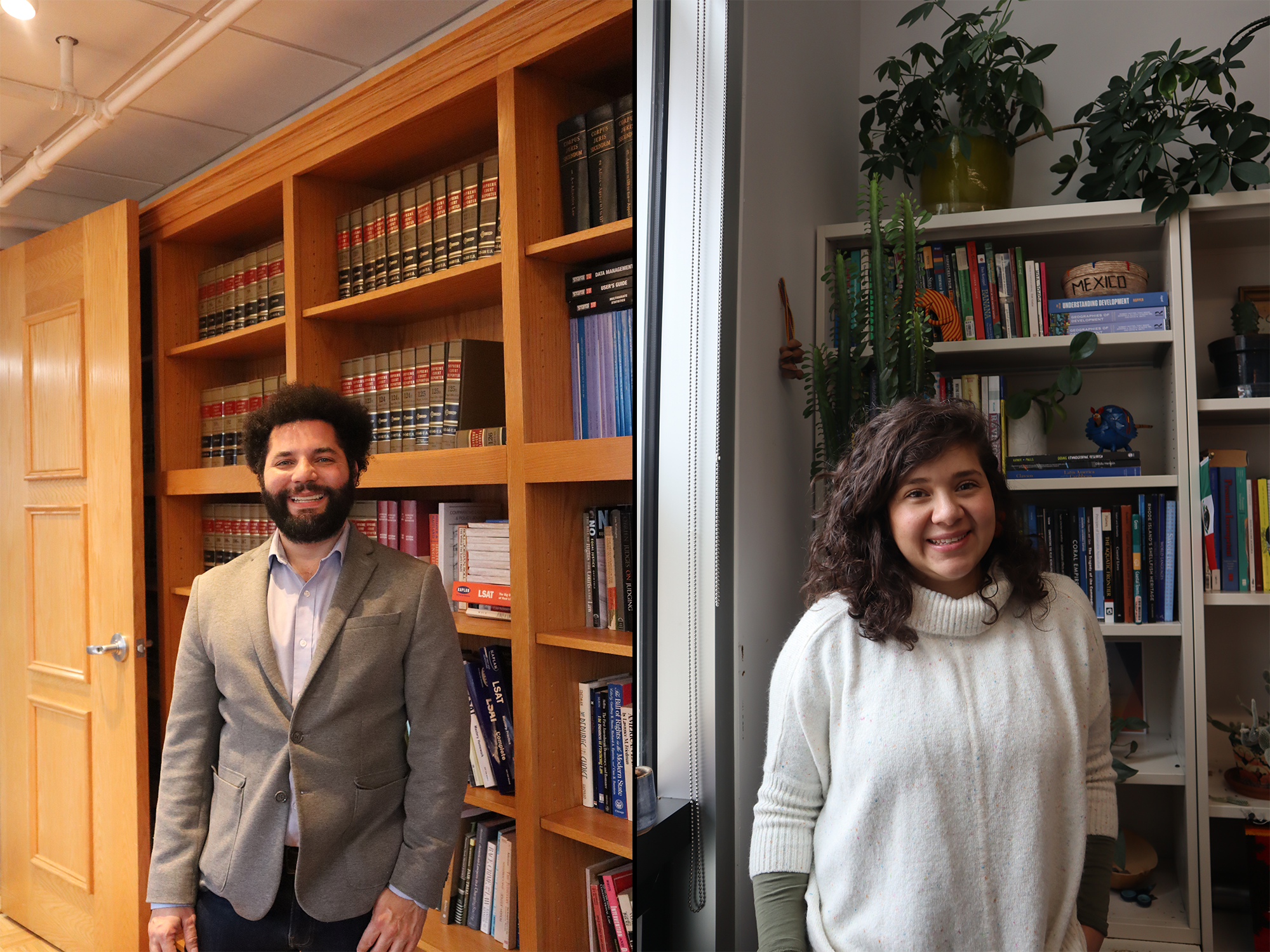For the national magazine, “Diverse: Issues in Higher Education,” narrowing a nationwide pool of scholars down to just 15 recipients for their annual Emerging Scholar award means you’ll seldom find two honorees from the same university.
This hasn’t happened since 2021, when both Soua Xiong and Cynthia Wang of California State University System were nominated for the honor. Now, for the 2024 edition, the University of Rhode Island is just one of two institutions to have multiple scholars representing the final 15 recipients – Melva Treviño Peña, a geographer and assistant professor in the Sustainable Agriculture and Food Services Program, and Brendan Skip Mark, assistant professor in the political science department and director of the Center for Nonviolence & Peace Studies.
“There’s hundreds of people that they had to evaluate, and I was really happy that when they sought two people from University of Rhode Island, it’s not like they’re like, ‘oh, we [just] have to pick one,’” Peña said.
The annual award is given to a group of 15 early-career minority scholars (age 40 or under) who are selected “based on such factors as research history, educational background and publishing and teaching records, along with having demonstrated perseverance and making a strong impact on their institution,” according to URI’s website. The candidates are selected from a pool of hundreds of nationwide nominations.
“We know from research that there are all these barriers to minority faculty getting tenure and advancement in the academic field,” Mark said. “I think these awards are really important, particularly because there’s still kind of a bias that diversity somehow dilutes academia and learning. And, you know, just looking at everything they’ve done, really just, there’s so much evidence that that’s just not true.”
Outside of her duties as an assistant professor, Peña said she is especially proud of her service that ventures beyond the classroom. After obtaining a Ph.D. in geography from the University of Oregon as a first-generation college student, she actively serves as a member of the La Fenix Geography Specialty Group in the American Association of Geographers and the New England Faculty of Color Working Group. Her service focuses primarily on “diversity, equity and inclusion and justice, and accessibility.”
For her, the honor serves as a recognition of service that, while often underappreciated in academia, is a valuable piece of her work with her students.
“I feel like I am very, very happy that it’s not that I got the recognition, but that people who do service like me got it,” Peña said. “You know, in some places, this is not a big deal. And I think that, to know that there are places like this magazine at the national level, who give this type of recognition to people who do not just me, but all these people’s work, that I think is what’s really special.”
Peña began her educational journey in aviation with a pilot’s license at age 18 in Nevada before making the switch to a collegiate career in International Affairs and Geology. This was a nonlinear undergraduate path that she said left her feeling confused, unmotivated and disillusioned at times. However, it was this process that got her to where she is today, and she uses what was once a source of “embarrassment” to help encourage students who may be feeling just as unclear about the way forward, giving them the support she didn’t always have in her youth.
“What I have been doing, I recognize that it’s what I want to be doing,” Peña said. “And I’ve been very open about it to my deans and my chair, and I’m like, this is the work that keeps me showing up to this job. It’s not the teaching, it’s not always the research, it’s this work.”
Mark, whose work as an assistant professor focuses primarily on social justice, human rights and political policy, echoed a similar sentiment. A graduate of Binghamton University with a Ph.D. in political science, he is a professor who prides himself in escaping the boundaries of the traditional classroom in order to empower students to go out and do work that engages with their community, his top priority is ensuring that students have control over their own education.
“One of the things I did last semester is I gave students a syllabus, I left the room for 15 minutes, and I said, if you can all agree on a change, aggregate it and we’ll change the entire course,” Mark said.
For Mark, the award simply reinforces the fact that his philosophy works – and it’s a trend that he said should only grow as higher education evolves.
“It’s convinced me that this is the approach to education that more people should take,” Mark said. “Going forward, I’m going to double down on human rights, education and making sure that we’re incorporating active engagement in the classroom research, having students engage in research [and] doing away with papers that no one will read besides you and your professor.”
Peña and Mark are two of just 15 distinguished scholars to receive the Emerging Scholar honor in 2024, all hailing from backgrounds and universities from across the country. The full list of the 2024 recipients, along with the full profile of each individual, can be found on the magazine’s website, diverseeducation.com.

